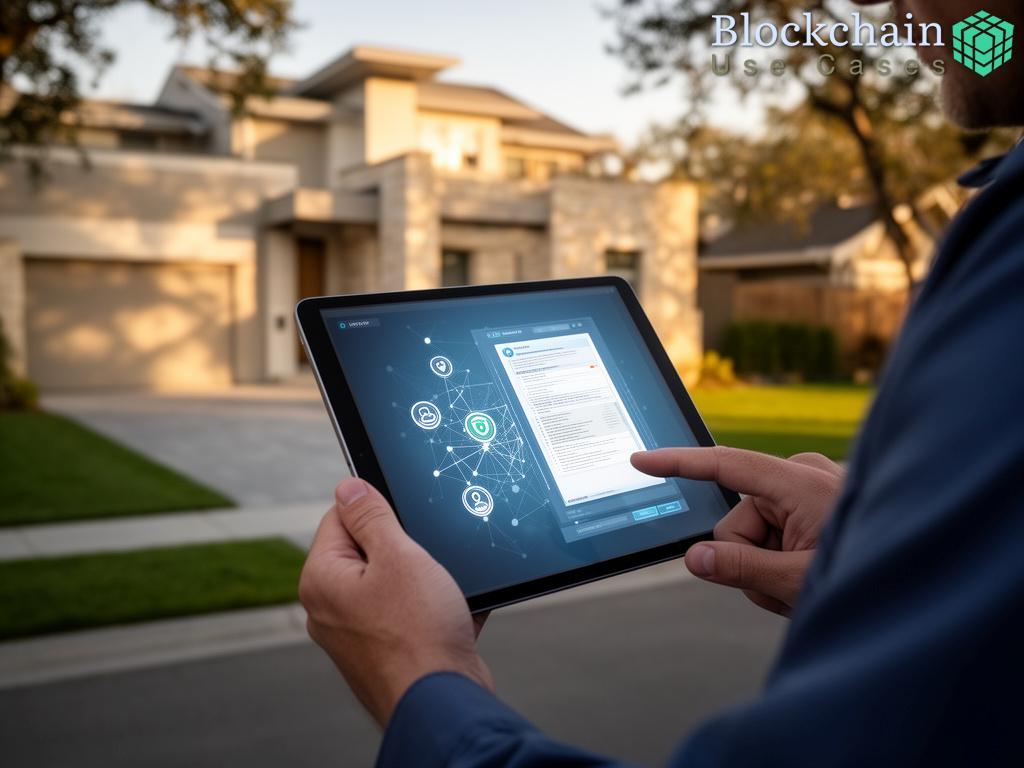Decentralization and Data Integrity in CRM
The advent of blockchain technology heralds a new era in Customer Relationship Management (CRM) within the real estate sector. The core principle of decentralization not only enhances operational efficiency but also empowers stakeholders by providing them with unprecedented control over their data. In a landscape where trust and transparency are paramount, the decentralized nature of blockchain offers a robust framework for managing customer relationships, thereby fostering deeper connections between real estate agents and their clients.
One of the most significant advantages of utilizing blockchain in CRM systems is the assurance of data integrity. In traditional systems, data manipulation and breaches can severely undermine client trust and hinder effective management. Blockchain, with its immutable ledger, guarantees that all transactions are recorded in a secure and tamper-proof environment. This bolstered data integrity not only instills confidence in clients but also enables real estate professionals to make informed decisions based on reliable data.
| Feature | Traditional CRM | Blockchain-Based CRM |
|---|---|---|
| Data Security | Vulnerable to Hacks | Enhanced Encryption |
| Data Integrity | Prone to Tampering | Immutable Records |
| Transparency | Limited Visibility | Full Transaction History |
| Cost Efficiency | High Maintenance Costs | Lower Overhead |
By leveraging the principles of decentralization and data integrity, blockchain can redefine customer engagement strategies in the real estate market. The capability to share verified data instantly across multiple stakeholders allows for more personalized service offerings. Moreover, the transparency afforded by blockchain can significantly reduce misunderstandings and disputes, leading to enhanced customer satisfaction. This shift not only benefits clients but also equips real estate professionals with the tools necessary to build lasting relationships based on trust and reliability.
Smart Contracts for Streamlined Transactions

The integration of smart contracts within blockchain technology is revolutionizing how transactions are conducted in the real estate sector. By automating agreements between parties, smart contracts significantly reduce the complexities and risks associated with traditional transactions. This not only accelerates the process but also enhances the overall customer experience, laying a solid foundation for trust and accountability.
Smart contracts eliminate the need for intermediaries, such as banks and lawyers, which often introduce delays and additional costs. With predefined conditions coded into the contract, transactions occur automatically once all criteria are met. This streamlined approach minimizes human error and fosters a faster, more efficient process for buyers and sellers alike.
In an industry where transparency is crucial, smart contracts offer unparalleled visibility into transaction processes. All parties involved have access to the same information, significantly reducing the likelihood of disputes. Because the terms are immutable and verifiable on the blockchain, stakeholders can engage with confidence, knowing that their interests are protected.
Here are some pivotal advantages of implementing smart contracts in real estate CRM:
- Speed: Transactions are executed instantly upon meeting conditions, cutting down the lengthy approval processes common in traditional systems.
- Cost-Effectiveness: By removing intermediaries, parties save on fees that can accumulate during the transaction.
- Security: The decentralized nature of blockchain ensures that contracts are safely stored and resistant to fraud.
- Accuracy: Automated execution reduces the chances of human error, ensuring that all details are accurate and adhered to.
- Compliance: Smart contracts can be programmed to follow legal regulations, ensuring that all parties adhere to applicable laws.
As the real estate industry continues to evolve, the significance of smart contracts cannot be overstated. Their ability to streamline processes, enhance trust, and provide clarity positions them as a critical tool in modern Customer Relationship Management strategies.
Enhanced Transparency in Property Histories
In the ever-evolving landscape of real estate, maintaining a comprehensive and transparent record of property histories is crucial for fostering trust between stakeholders. The integration of blockchain technology significantly enhances this transparency, transforming how property transactions are perceived and conducted. By offering a permanent and accessible ledger of property ownership, transaction history, and legal documentation, blockchain not only mitigates risks associated with fraud but also empowers buyers and sellers with confidence in their dealings.
The traditional methods of documenting property histories often involve cumbersome paperwork and reliance on third-party verification, which can lead to inefficiencies and misunderstandings. In contrast, the immutable nature of blockchain ensures that every transaction is recorded in a single, tamper-proof source. This feature allows prospective buyers to verify the authenticity of property titles and previous ownerships effortlessly, ensuring they are making informed decisions without the fear of hidden issues.
One of the key benefits of utilizing blockchain for property histories is the enhanced level of trust it instills among participants. With each transaction transparently logged on the blockchain, all parties have access to the same verified information. This level of visibility not only simplifies the buying and selling process but also drastically reduces the chances of disputes arising from discrepancies in property information.
Furthermore, the accessibility of this data can significantly streamline the due diligence process. Real estate professionals can quickly retrieve the entire history of a property, including past ownership, sale prices, and any legal encumbrances. Such comprehensive insights enable agents and clients to engage in more meaningful conversations, ultimately leading to better negotiation outcomes. As blockchain technology continues to advance, the potential for enhanced transparency in property histories will only grow, making it an indispensable tool in modern real estate transactions.
Improving Client Trust through Immutable Records
In the competitive realm of real estate, client trust serves as the cornerstone of successful relationships and transactions. The introduction of blockchain technology has fundamentally transformed how trust is established between real estate professionals and their clients. By leveraging the inherent characteristics of blockchain, particularly its immutable records, stakeholders can foster an environment of transparency and reliability that was previously unattainable.
One of the standout features of blockchain is its ability to maintain unchangeable records. Each transaction, once recorded, becomes a permanent part of the blockchain, creating a secure and verifiable history that is accessible to all parties involved. This permanence is a game-changer for real estate, where the potential for fraud or misinformation can plague transactions. Clients can now have confidence in the authenticity of the data presented to them, knowing that it cannot be manipulated or erased. The ability to verify property titles, ownership history, and transaction details with absolute certainty significantly enhances the credibility of real estate professionals.
Moreover, the transparency that comes with blockchain technology allows clients to engage with their real estate agents more openly. With all relevant information readily available, clients are empowered to make informed decisions based on accurate data. This democratization of information not only mitigates risks associated with hidden issues but also reinforces the trust that clients place in their agents. When clients are confident that they have access to the same information as their agents, it fosters a collaborative atmosphere that can lead to more successful negotiations and a higher level of satisfaction.
Leveraging Tokenization for Customer Engagement
In an era where personalized customer experiences are paramount, the potential of tokenization in the real estate sector is becoming increasingly evident. Tokenization refers to the process of converting rights to an asset into a digital token on a blockchain. This innovative approach not only streamlines transactions but also enhances customer engagement by enabling real estate professionals to offer unique and tailored services.
Empowering Clients with Ownership and Engagement
Tokenization allows for fractional ownership of real estate assets, meaning that customers can invest in properties at a lower entry point. This democratization of real estate investment not only makes it accessible to a broader audience but also fosters a sense of ownership among clients. By owning a token representing a share of a property, clients feel more connected to their investments. This connection enhances engagement as clients are more likely to interact with the platform, seek information, and participate in decision-making processes regarding their assets.
Enhancing Customer Experiences through Customizable Tokens
Another significant advantage of tokenization is the ability to create customizable tokens that can be tailored to meet specific client needs. For instance, real estate agencies can develop loyalty tokens that reward clients for their engagement, referrals, or repeat business. These tokens can be redeemed for discounts, exclusive access to properties, or special services. Such initiatives not only motivate clients to engage more actively with their agents but also build long-term loyalty by providing tangible benefits that resonate with them. Furthermore, the transparency and security of blockchain technology ensure that all transactions involving tokens are trustworthy and verifiable.
As the real estate industry continues to evolve, the integration of tokenization into customer relationship management strategies will undoubtedly play a pivotal role in enhancing client interactions. By leveraging this innovative approach, real estate professionals can create a more dynamic and responsive environment that prioritizes customer needs, ultimately leading to increased satisfaction and loyalty.





